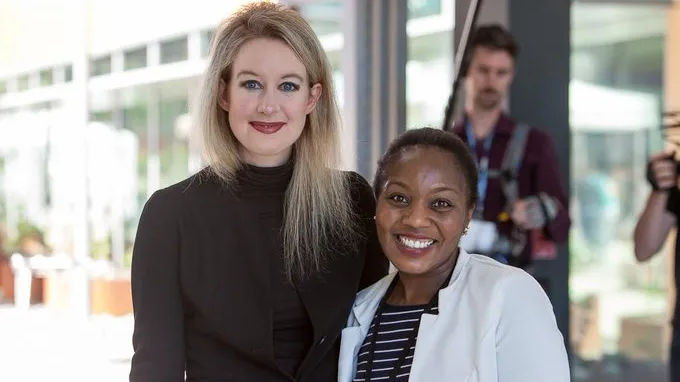Elizabeth
Holmes was on top of the world as a 30-year-old in 2014 as her biotech startup
Theranos claimed to have developed technology touted to revolutionise healthcare.
The company, with a peak valuation of $9 billion, claimed its Edison machine
could diagnose conditions such as cancer and diabetes in quick time with just a
drop of blood – eliminating the need for needles and tedious lab testing
procedures.
She soon
became “the world’s youngest self-made billionaire” as she was hailed by Forbes
magazine, while another business magazine Inc called her the “next Steve Jobs”.
Then why is she on trial?
Holmes, a dropout
form Stanford University, claimed the machine could perform life-saving tests
cheaply and practically anywhere, saving time and money for both patients and
doctors as it needed just a drop of blood from a finger prick and could function
in locations such as the next-door grocery store. It claimed Edison could
diagnose over 200 conditions.
She was
known for her fascination of Apple’s iconic founder Steve Jobs, styling her
look after him as she was known for wearing the signature turtleneck and
referring to Edison as the “iPod of healthcare”.
She even used
a marketing strategy similar to Apple’s.
Her story drew
investors to the project, including Oracle co-founder Ellison, Walmart founders
the Walton family, media tycoon Rupert Murdoch and former US Secretary of
Education Betsy DeVos.
Also Read | Michigan couple ordered to pay $45,000 for throwing son’s porn collection
However, by
2015, the company was exposed as a Wall Street Journal story – based on whistle
blowers and data – showed that technology worked inconsistently, if at all, and
that the reports it produced were secretly based on lab-based procedures,
according to Al Jazeera.
By 2018,
the company had collapsed with Holmes, now 37, facing up to 20 years in prison
and a nearly $3 million fine. Also facing the same fraud charges are former
Theranos president and CEO Ramesh ‘Sunny’ Balwani, who was once in a relationship
with Holmes.
Also Read | GOP launch ballot drive to bypass governor on Michigan election laws
Both face two
counts of conspiracy to commit wire fraud, nine counts of wire fraud for allegedly
engaging “in a multi-million-dollar scheme to defraud investors, and a separate
scheme to defraud doctors and patients”.
They are
also accused of using a “a combination of direct communications, marketing
materials, statements to the media, financial statements, models, and other
information to defraud potential investors,” according to the indictment.
They are
being tried separately, with Balwani’s trial scheduled for January next year,
while the jury selection in Holmes’ trial is set to begin on Tuesday.







